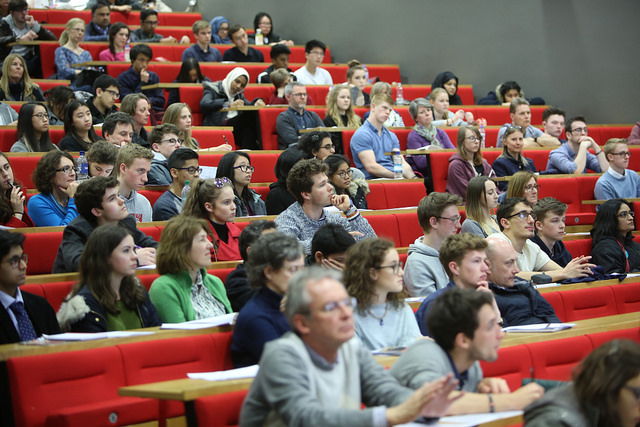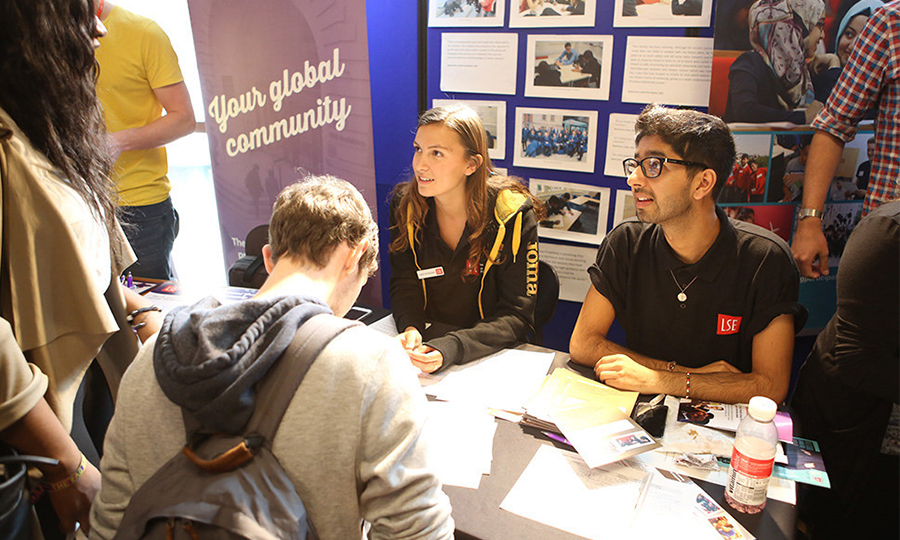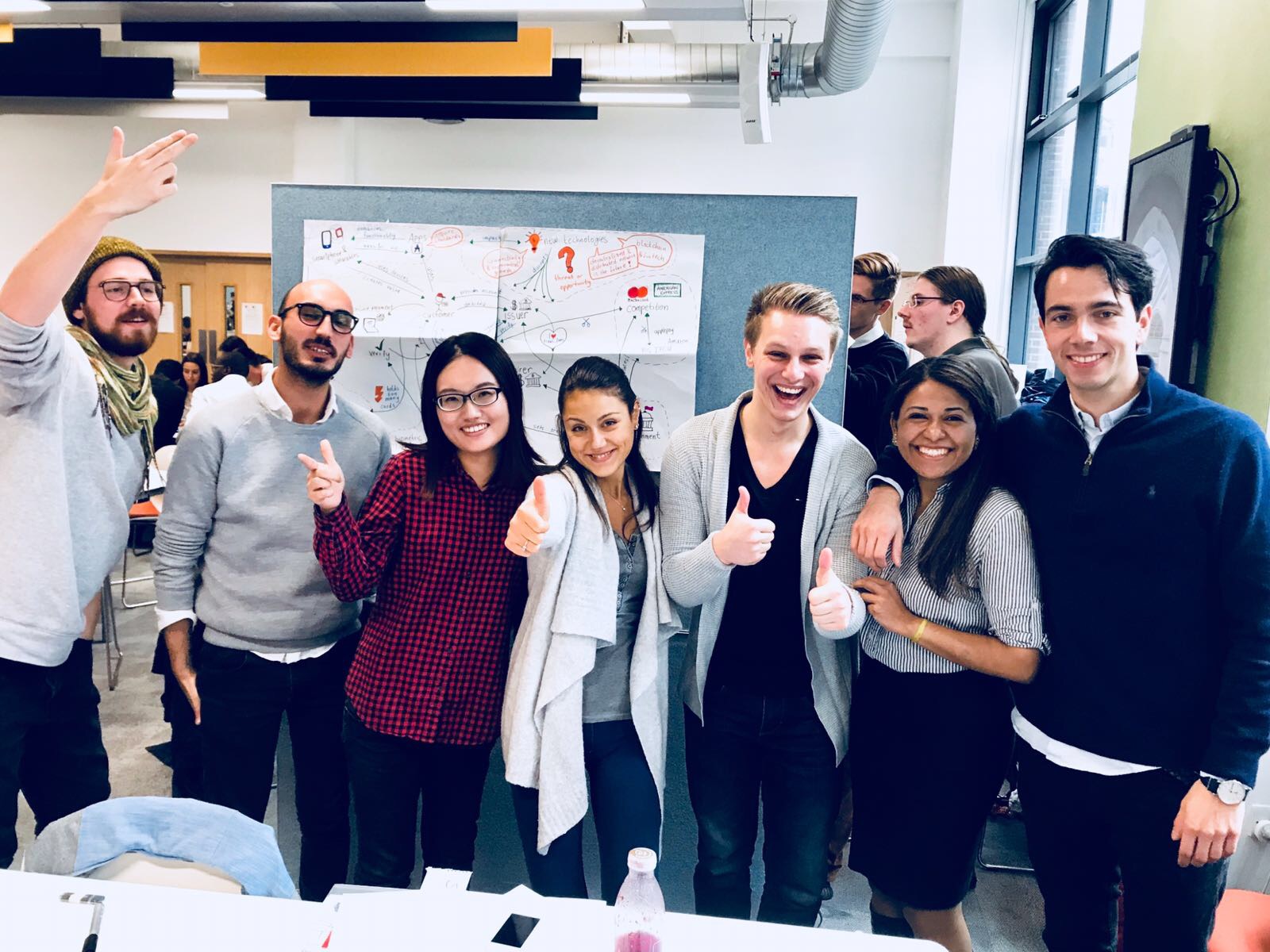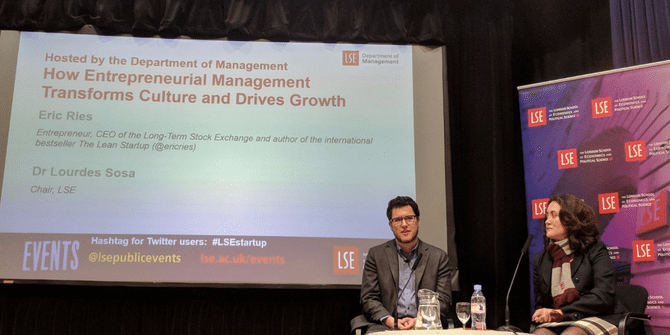After working to create social change with NGOs in Africa, Social Innovation and Entrepreneurship Master’s student Stephanie Cantor was inspired to learn about how well-designed entrepreneurialism can transform developing communities – and to start a project devoted to understanding and alleviating youth unemployment in one of Kenya’s biggest slums.
Finding out what you want to do with your life isn’t easy. Deciding what you want to commit to is hard enough, and even once you’ve chosen a field you then have to work out how to have a positive impact. But having just started my MSc Social Impact and Entrepreneurship, I feel that I’m on track to make social change in the areas I’m most passionate about.
I’ve always been interested in the overlap between business and social impact. At PwC, I worked in corporate social responsibility and international development consulting. It was a great experience, but I wanted to be closer to the solutions directly impacting communities.
What I wanted most was to understand how to create community-led change. So I worked with GlobalGiving in South Africa. Working as a Project Evaluator, I travelled to very rural areas and townships, helping local organisations develop strategies to promote their work to new audiences, access relevant professional support and improve the long-term efficacy of their programmes.
Many of these organisations have unparalleled insights into the challenges their communities face, and are uniquely poised to meet these challenges with life-changing solutions. What they sometimes lack however, are business skills: how to create a fundraising strategy, for example. The learning curve for me was in how to offer business advice that built on existing efforts and accounted the local situation.
GlobalGiving helped me consolidate my knowledge and prior work experience, inspiring me to learn as much as possible about international development. But I began to feel that I wanted to further my understanding of development and innovation theories, and to engage with practical, real-life development challenges and the people who face them.
That’s why I chose LSE’s MSc Social Innovation and Entrepreneurship (SIE): it provides a unique opportunity to do both. Not only does it teach rigorous theoretical frameworks, but it also allows students to be immersed in the frontlines of social change.
Once I was assigned to Kenya for my SIE field trip, my group chose to focus on youth unemployment (ages 18-35). I strongly believe in strengthening the link between business and social change. It’s where a lot of positive change emerges, especially through social entrepreneurship. By studying youth unemployment in Mukuru, one of Nairobi’s biggest slums, I hope to gain insight into the challenges young Kenyans face.
As it happened, one of my fellow SIE classmates is from Kenya. She really helped us to flesh out our research, giving us valuable advice on how to go about researching unemployment in Mukuru. Her perspective has already shaped the course of our study for the better. Thanks to the incredible diversity of both LSE and the SIE programme, we were able to receive a first-hand view of Kenyan culture.
The SIE programme doesn’t just teach you about entrepreneurship; the program challenges each of us to think like entrepreneurs… How will we conduct the interviews? Should we include focus groups? What are the ethical implications of our research?
The SIE programme doesn’t just teach you about entrepreneurship; the program challenges each of us to think like entrepreneurs. Whereas other programmes offer straightforward field trips, SIE demands that we define our research goals and root our questions in methodological frameworks. How will we conduct the interviews? Should we include focus groups? What are the ethical implications of our research?
Two members of our group will visit Mukuru over November reading week, and will conduct interviews and focus groups in order to understand the challenges youth in Mukuru face with regard to employment. The data they collect will help shape our proposed Theory of Change. This will be our roadmap for change, offering solutions specifically tailored to the problems in Mukuru.
When the rest of the group visits in February (which is the trip I will be on), we’ll be ready to test our Theory of Change on the ground. It’s an exciting proposition, and is extremely motivating. When you know that your ideas could impact people living in difficult conditions, you’re determined to put your all into it. Our goal is to turn our solution into something sustainable for the community in Mukuru, with the hope that it can become something the community feels ownership over and excited about continuing even if we aren’t a part of it . We’re going into this with the belief that we can help the community make a lasting impact.
I’m hoping that SIE will give me a clear understanding of how to affect change as an individual. I don’t pretend to know what Kenya needs, but by immersing myself in the challenges of a community like Mukuru. And by understanding the latest theories of development, I believe I can make a positive impact on the lives of those living there.
Learn more about our MSc Social Innovation and Entrepreneurship programme






